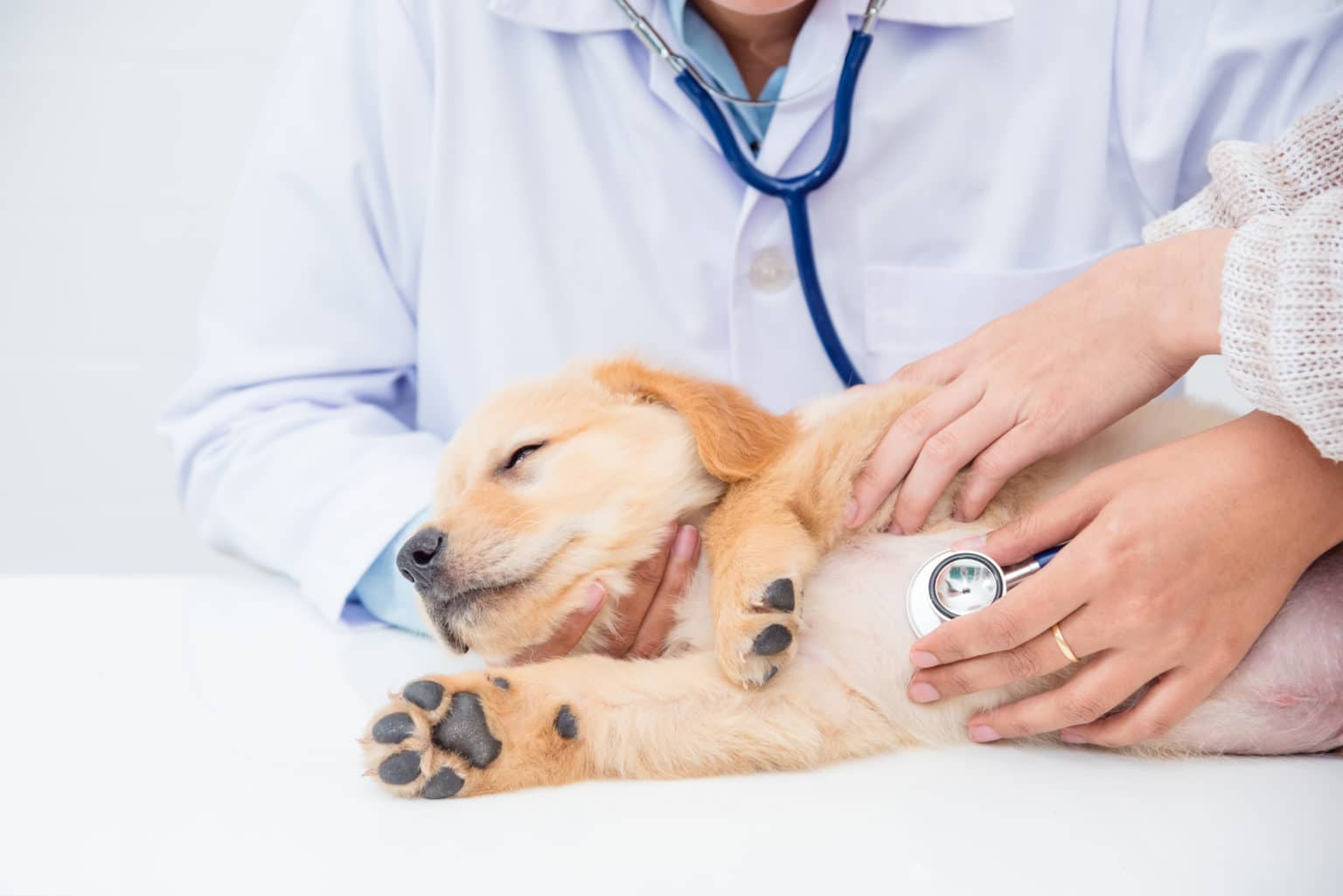Wouldn’t it be nice if your furry buddy could talk? When he gets sick, he could simply put a paw on your arm and tell you all about it. Sadly, the world doesn’t work like that. Instead, dogs count on us to identify the subtle signs of lurking diseases.
However, it’s not always that simple. When in distress, dogs will hide their symptoms as part of a survival technique. Fortunately, no one knows your buddy as well as you do. If you notice any of the symptoms we discuss today, don’t delay – go to the vet!
How to Tell if Your Dog Is Sick

Just like humans, your dog will fall ill. While the graver symptoms should be dealt with by a veterinarian, some minor complications, such as fleas, can be dealt with at home. Learning how to read the signs and knowing what steps to take can help you choose the best way to go if your dog starts feeling out of sorts. Although the signs are not always clear, you can train your eyes to look for the subtle signs that may suggest a possible illness.
Changes in Behavior
When dogs get sick, they tend to display changes in behavior and sometimes personality. Usually, these changes occur quickly. Your highly social dog may start to withdraw from group ventures. Or your kind puppy may begin to show aggression or snippiness. Pay attention to him if he starts to growl when you get near a particular part of the body. Dogs may try to bite you if you get too close to the root of their pain. On the other hand, some dogs may display clinginess or show signs of unusual neediness. A single episode of diarrhea is no cause for alarm; however, there is cause for concern when diarrhea occurs several times a day.
Weight Loss
While weight loss isn’t necessarily a warning that something is going on, unexplained weight loss could indicate a problem. Dogs who gain weight without any alterations to their diet may be experiencing health problems. This sign may take a few weeks to discern.
Respiratory Issues
Wheezing and coughing are all clear signs of a respiratory issue. These issues can vary from a mild cold to canine flu. If your dog has the flu, there will most likely be additional symptoms present like redness of the eyes and a stuffy nose. Check the color of your dog’s tongue and gums. If they have a bluish tint, your dog needs urgent care.
Discharge Issues
Properly house-trained dogs won’t suddenly start urinating or defecating around the house without a valid reason. Be mindful of the following shifts in your dog’s elimination habits:
- Trouble defecating
- Difficulty urinating
- Changes in urine volume
These changes are very important to note in older dogs. Disproportionate amounts of urination may indicate a kidney issue. Bloody urine and loose stools may also indicate a severe health problem. A single episode of diarrhea is no cause for alarm; however, when diarrhea occurs several times a day, there is cause for concern.
Loss of Appetite
Loss of appetite is another indication that something may be wrong. Not all dogs have the same eating habits. Your dog may eat more on some days than on others. But if your dog no longer eats his food, consider calling the vet. A change in drinking habits is also something to watch out for. Drinking more water or less water than normal may also be a warning that your dog is sick. Drinking a lot of water can indicate that he has a fever, hormonal complications, or kidney issues.
Poor Skin Health
Dry skin is often related to inadequate diet or sensitivities, but sometimes it can be a sign of a more serious problem. Hormone-related ailments such as Hypothyroidism and Cushing’s Disease often cause hair loss and skin changes, especially in senior dogs. If your dog’s skin looks dry or flaky, talk to your vet. Also, prolonged itching, blemishes, and the apparition of lumps should always be examined by a veterinarian and observed for changes.
Shaking
Dogs shake for multiple reasons, including stress and cold. Shaking can also mean your dog is ill or in pain. Shaking can be quite severe if related to a neurological infirmity such as epilepsy or even a stroke. If you suspect your dog is undergoing a sickness involving their brain or nervous system, seek immediate attention.
Additional symptoms include:
- Partial paralysis
- Tremors
- Twitching
- Loss of consciousness
- Disorientation
- Weakness in the limbs
- Stumbling
Lack of Energy
There is a huge difference between an untroubled dog and a lethargic dog. It is quite normal for dogs to spend most of their time resting.
Resting becomes a cause for concern when it is out of the ordinary. For example, if your dog no longer jumps out of bed for the once highly-anticipated morning walks, comes when called, and gorges his food, it may be an indication that something deeper is going on.
Takeaway
No one knows your dog better than you. If you think your dog is ill, chances are, you are probably right. It’s better to be safe than sorry, so when in doubt, call your vet. If you wait too long, the illness might progress, and it could be too late. You are your dog’s only hope!











